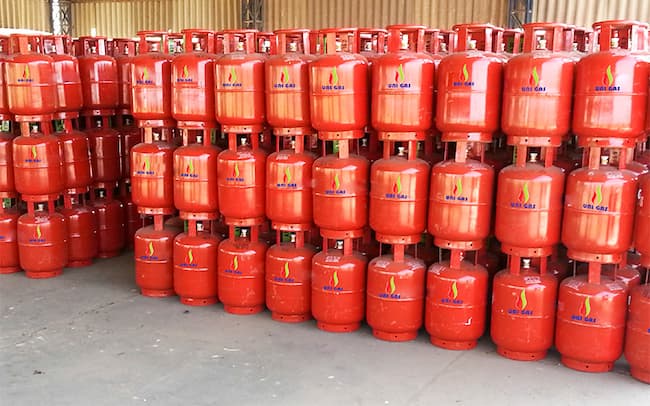More than half of the Liquefied Petroleum Gas (LPG), also known as cooking gas, consumed in Nigeria in April was imported from three countries despite the huge gas reserves in the country.
Nigeria, which ranks as the ninth largest natural gas reserve globally, imported 92,643.181 MT of cooking gas from the United States, Russia and Equatorial Guinea in April.
Data obtained by BizWatch Nigeria from the Petroleum Products Pricing Regulatory Agency (PPPRA) showed that this represents 67 percent of the 137,697.74 MT of total gas supplied to consumers in the country in April.
Marketers were able to produce 45,054.554 cooking even when the country has about 202 trillion cubic feet of proven gas reserves and an additional 600 trillion cubic feet unproven gas reserves but continued to suffer supply shortage over the years.
READ ALSO: NNPC Renews OML 118 With Shell, Others
The marketers imported a total of 263,062.467 metric tonnes from January to April this year.
Nigeria imported 43,399.018 MT of LPG in January, while 29.700.569 MT million litres were produced locally.
In February, the country imported 44,178.668 MT and produced 48,562.016 MT and in March imported 77,840.6 MT and produced locally 45,335.732 MT of LPG.
Further analyses of the data showed that a total of 67,798.947 MT of cooking gas was imported from the US; 11,975.593 MT from Russia; and 12,868.641 MT from Equatorial Guinea in April.
“Out of 8.5bscfd of natural gas production in Nigeria, only 18 per cent of natural gas produced is being utilised by the domestic market. A large percentage of the gas produced is used for the export market.
Re-injection is 32 per cent and flared gas stands at seven per cent,” the Group Executive Director/Chief Operating Officer, Gas and Power, NNPC, Mr Saidu Mohammed, said at an industry event two months ago.
READ ALSO: COVID-19: 5 Largest Oil Companies Record $500 Billion Loss
President Muhammadu Buhari earlier this year launched an ambitious plan called ‘Decade of Gas’ that aims to harness the gas reserves to power the economy by 2030.
Buhari, while speaking at a pre-summit gathering of the Nigeria International Petroleum Summit in Abuja, said the government will leverage the huge gas reserves to become not just a major exporter but a major gas consuming country.
“Our major objective for the gas sector is to transform Nigeria into an industrialized nation with gas playing a major role and we demonstrated this through enhanced accelerated gas revolution,” the president said.
The Executive Secretary, Nigerian Association of Liquefied Petroleum Gas Marketers (NALPGAM), Mr Bassey Essien, recently noted that even though the country produced four million metric tonnes of gas was being produced annually, only 350,000MT is allocated to the for use as cooking gas in the domestic market.
According to him, the regular importation of the product to bridge the production shortfall has affected the price of cooking gas in the country.
The Minister of State for Petroleum Resources, Chief Timipre Sylva, recently stated that the challenges in the sector were well understood and that the Petroleum Industry Bill (PIB) will provide a solution in transitioning towards a gas economy.
















